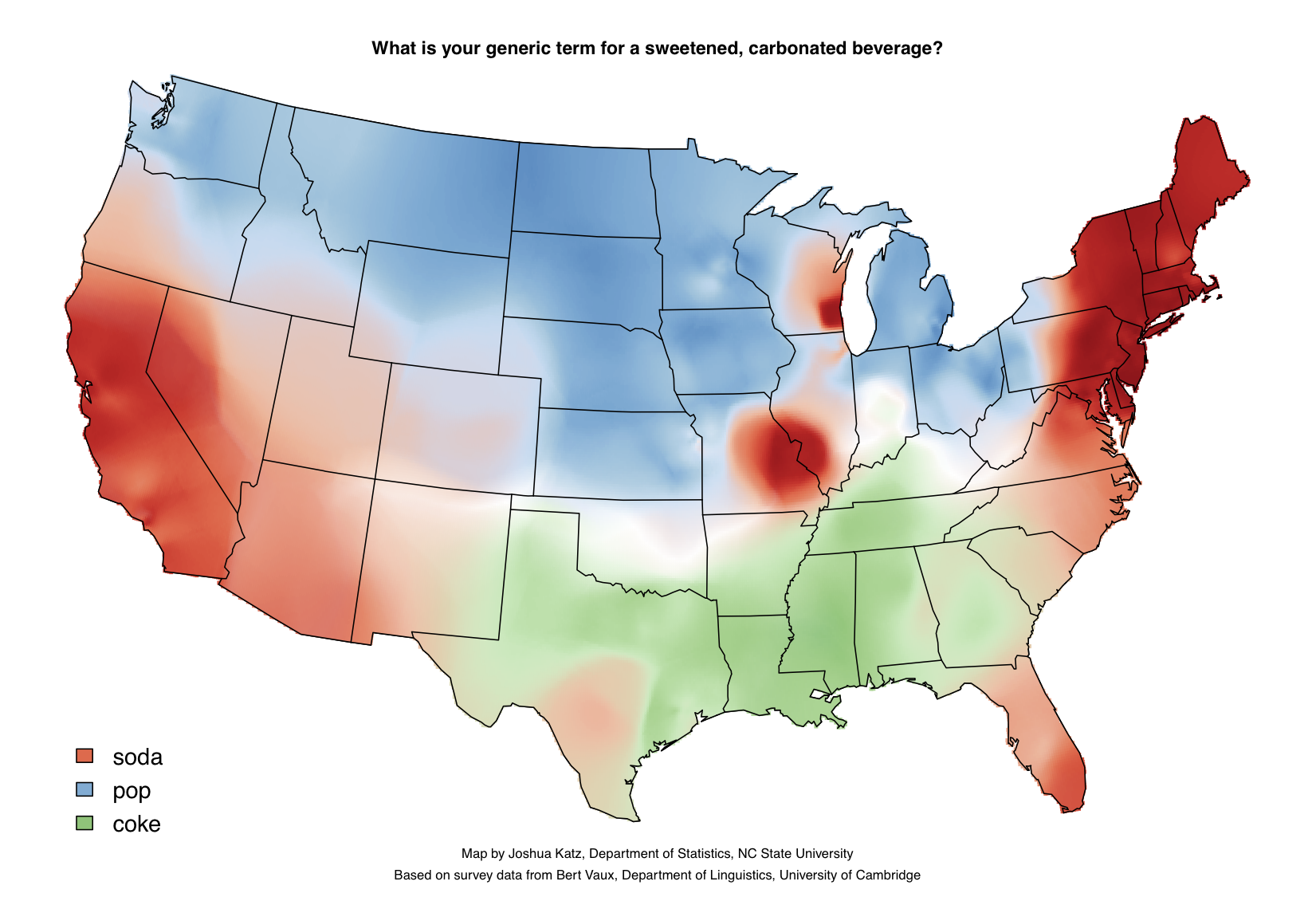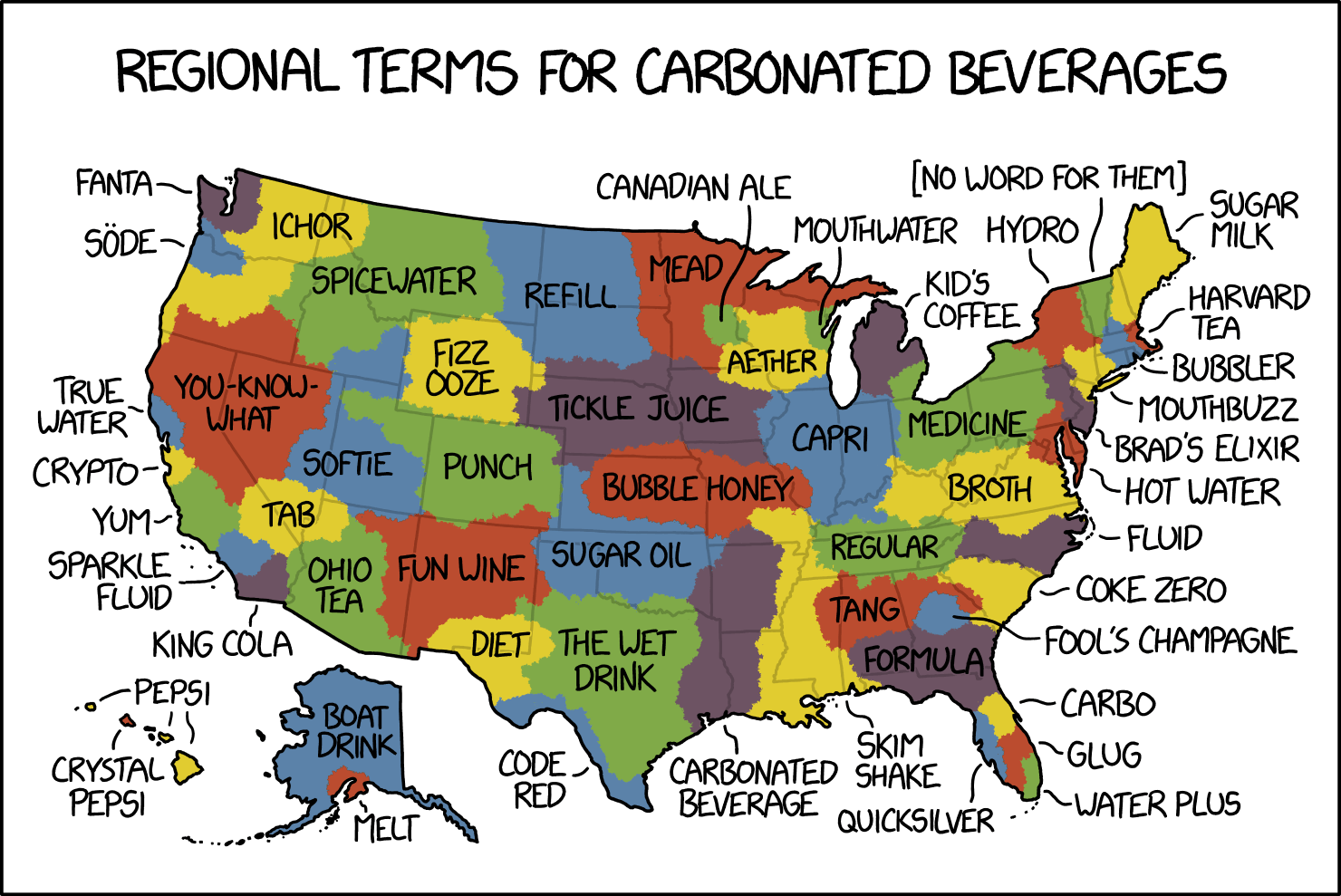MissRoberta
Virgin
- Joined
- Dec 1, 2023
- Posts
- 20
Thank you for helping me understand soft drinks in Texas! I was feeling lostWe have all varieties of non alcoholic carbonated beverages with obscene sugar content in all kinds of flavors and variations. In other parts of the country I have heard them referred to as soda or pop. In Texas, the generic is coke.
When ordering a specific flavor, it is acceptable to use the brand name, but as a generic, they are referred to as coke, not soda.
But whatever you call it, we're a friendly bunch. We don't generally bite unless requested.

